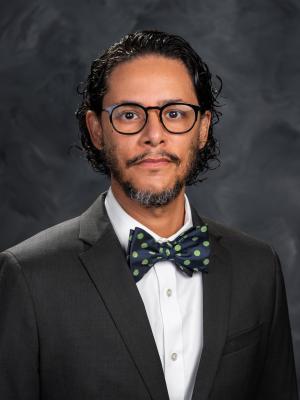We’re Stronger Together
With your help, we can advance education and improve student success in our community.

Passion for knowledge constitutes a social bond that holds a community together. Guided by my passion for knowledge, my overarching goal is: 1) to create a body of work that has meaning and longevity, 2) to make it possible for others like me to do the same, and 3) to share my discoveries with my community.
I am thankful for the opportunities I have been afforded in the past six (6) years at Loma Linda University. During this time, I have been given the opportunity to contribute to the University and scientific communities in four major areas: 1) Development of a research program that investigates how early-life adversities contribute to obesity health disparities. The primary goal is to elucidate mechanisms predisposing racial/ethnic minority groups to obesity and metabolic dysregulation. We have had continuous funding since my first year as a faculty at LLU, with my first NIH R-series grant starting in April 2020. There are currently eight (8) grants in my laboratory; four (4) that I manage and direct and four (4) in which I contribute as co-Investigator and collaborator. 2) Development of graduate emphasis programs within the Integrated Biomedical Graduate Studies Program, which includes participation in several curricula and program assessment committees, teaching in new courses, including the core Fundamentals of Neuroscience course (NSBB500), creating and organizing the advanced course in Neurobiology of Stress (PHSL694), recruiting students for these programs in the last few years, and serving on qualifying and thesis dissertation committees for more than 24 graduate students. 3) Involvement in essential roles in the School of Medicine Admissions team as an interviewer and as a member of the Initiative for Maximizing Student Diversity (IMSD) selection committee, University Faculty Council, and as Vice-Chair for the Institutional Animal Care and Use Committee (IACUC). 4) Serving national and international scientific duties, including a member of LLU, UC Davis, NIH grant review study sections, reviewer of many manuscripts for several journals, editorial roles for Frontiers in Neuroscience: Neuroenergetics, Nutrition, and Brain Health, and co-organizer for local and national research symposia. In addition, I serve as an educator/instructor for our Seventh-day Adventists schools and churches, promoting healthy lifestyles and sharing our laboratory findings on the effects of diet on the brain and behavior.
In the near future, I will continue my commitment to contributing to all four areas. 1) Research remains the primary focus and takes most of my effort. In recent years, we have begun to shift our emphasis more towards mechanistic studies, which has involved forming several collaborations within LLU and at other institutions. We are currently developing several projects: a)analyzing secondary neuroimaging datasets to investigate brain biomarkers predictive of obesity in adolescents from disadvantaged backgrounds, b) identifying epigenetic processes that contribute to vulnerability to obesity, and c) developing a novel NIH-funded research program for underrepresented minorities. We are also exploring and developing new methods for blood biomarkers of stress resilience and vulnerability. I have been working with several colleagues at LLU to develop collaborative projects between neuroscience, nutrition, health disparities, and cancer, most with internal and external funding sources. LLU is already a recognized center in most critical research areas. The proposed interdisciplinary translational approach represents the current funding priority of several NIH institutes.
At this time, I will focus on the following areas: 1) Research: (i) identifying mechanisms connecting adolescent stress with obesity and disordered eating later in life, (ii) understanding mechanisms by which lifestyle interventions (diet and exercise) confer neuroprotection and resilience, and (iii) establishing community-based obesity interventions for adolescents at risk. These projects have taken us to a wide range of experimental approaches, collaboration, and the developing of many new technologies. We have started the conversation with Dr. Samardzija regarding the development of intellectual property. 2) Teaching: I will continue to offer the neuroscience foundational courses and intend to expand the program course offering in this area to reflect the strength of our faculty, particularly in Neuroscience areas relevant to Cancer, Nutrition, and Behavior. Hopefully, with the competitive renewal of the IMSD program, I will continue to contribute to this program and push its focus on training and recruiting underrepresented minority students to LLU. 3) Administration: I will continue to act as interim Vice-Chair for IACUC as long as the Research Affairs Office sees the need. In addition, I will continue my involvement in the LLUSM and IMSD admissions committees, faculty council, and the Basic Sciences Symposium organization committee. 4) I will continue to serve in grant review study sections. I continue to review manuscripts for several journals and hope to move onto editorial boards shortly.
LLU has provided a unique platform to impact students and leave a legacy. I am committed to letting my Christian faith permeate the lives of the students and those I interact with. I look forward to continuing to develop my scholarship and leadership at this institution.
With your help, we can advance education and improve student success in our community.